STEPHEN ELLIS is senior researcher at the African Studies Centre in Leiden and the Desmond Tutu Professor in the social sciences at the Free University of Amsterdam.
The University of Chicago Press, Chicago 60637
C. Hurst & Co. (Publishers) Ltd, London
2011 by Stephen Ellis
All rights reserved. Published 2012.
Printed in the United States of America
21 20 19 18 17 16 15 14 13 12 1 2 3 4 5
ISBN-13: 978-0-226-20559-5 (cloth)
ISBN-10: 0-226-20559-2 (cloth)
ISBN-13: 978-0-226-20561-8 (e-book)
Library of Congress Cataloging-in-Publication Data
Ellis, Stephen, 1953
Season of rains : Africa in the world / Stephen Ellis ; foreword by Archbishop Desmond Tutu.
p. cm.
Includes bibliographical references and index.
ISBN-13: 978-0-226-20559-5 (cloth : alkaline paper)
ISBN-10: 0-226-20559-2 (cloth : alkaline paper) 1. AfricaEconomic conditions21st century. 2. AfricaSocial conditions21st century. I. Tutu, Desmond. II. Title.
HC800.E45 2012
330.96dc23 2011030249

This paper meets the requirements of ANSI/NISO Z39.48-1992
(Permanence of Paper).
Season of Rains
Africa in the World
STEPHEN ELLIS
Foreword by
ARCHBISHOP DESMOND TUTU
THE UNIVERSITY OF CHICAGO PRESS || Chicago
CONTENTS
by Archbishop Desmond Tutu
ACKNOWLEDGEMENTS
The idea to write this book came from Roel van der Veen, scientific advisor at the Dutch ministry of foreign affairs. In April 2008 he invited me to read a short paper to a seminar attended by government officials, and subsequently he suggested turning the paper into a book that might help people at the foreign ministry to develop some new approaches to Africa. I am most grateful to him for his invitation to carry out this study and for providing me with a research budget. I am also grateful to the minister of development cooperation at that time, Bert Koenders, for assenting to the original proposal.
It was clear from the outset of this project that I would have complete liberty of expression, and for this I am enormously grateful to all concerned. contains a reflection on the possible uses of European development aid that has been included in conformity with the original terms of reference of this study. This as well as other chapters benefited from debates with officials of the foreign ministry too numerous to list by name, although I must single out Maarten Brouwer, who among other things formally commented on a presentation of an earlier draft of this book. Nevertheless, the views contained herein are entirely my own.
Leo de Haan, then director of the African Studies Centre in Leiden, agreed to me taking time off from other duties in order to work on this project. He too deserves my thanks. I would also like to acknowledge my other employer, the Vrije Universiteit Amsterdam, and especially my colleagues in the southern Africa unit, Savusa.
In the course of travelling to gather material for the book I have contracted numerous debts of gratitude. I am particularly grateful to the following: Liu Haifang in Beijing; Ahmed Rajab and John Foster in Dubai; Adams Bodomo, as well as my brother David Ellis and my sister-in-law Susan Ellis, in Hong Kong; Richard Dowden in London; and Marja Hinfelaar in Lusaka. Sadly, one of the last people I saw during a research trip to Nairobi in 2008 was Tajudeen Abdul-Raheem, who was killed in a car accident just a few weeks later. It never crossed my mind that I would not see his cheery smile again. May his soul rest in peace.
Michael Dwyer, managing director of Hurst & Co., read an earlier draft of the manuscript and made many valuable suggestions. He is everything a publisher should be. I am also grateful to Daniel Branch of Warwick University for his comments on an earlier draft, and of course I am indebted to Archbishop Desmond Tutu for writing a foreword.
As always, I am grateful to my life partner, Gerrie ter Haar, for her help and support.
Amsterdam, July 2010
FOREWORD
Archbishop Desmond Tutu
I remember vividly the glorious day in 1994 when Nelson Mandela was inaugurated as president of South Africathe first to have been elected by majority vote. His election drew a line under our history of apartheid and institutional racism and made us all look towards a better future.
I also remember the day in 1980 when Zimbabwe gained its independence. Many of us had similar feelings of elation at that time, but they have turned into deep disappointment.
When it comes to politics, we could say that these two stories summarise Africas achievements but also its struggle to realise its full potential.
I have always had hope in humankind. I know what marvellous things people can accomplish. I have also seen what mistakes they can make. Worse, they can be guilty of corruption and wickedness. In my lifetime, Africa has had its share of all of these. Its recent history is a mixed record of both achievement and disappointment. I have no doubt that this is true of every continent as well, which serves to make the point that in the end, we Africans are like everyone else. We are capable of the best and the worst.
I believe that Africa will play an important role in our still-young century, for reasons that Stephen Ellis explains in this book. We have the people, we have the ability and we have unwavering hope in the future.
This book was written by a professor at the Vrije Universiteit in Amsterdam whose title has an interesting namemy own! I congratulate his university on establishing the Desmond Tutu programme, which cooperates with students and academics in South Africa. Most of all, I hope that you will read and enjoy this thought-provoking book.
Cape Town, July 2010
ACRONYMS
| Africom | United States Africa Command |
| ANC | African National Congress |
| AQIM | Al Qaeda in the Islamic Maghreb |
| AU | African Union |
| BBC | British Broadcasting Corporation |
| BCCI | Bank of Credit and Commerce International |
| COSATU | Congress of South African Trade Unions |
| DRC | Democratic Republic of Congo |
| ECOWAS | Economic Community of West African States |
| EU | European Union |
| FARC | Revolutionary Armed Forces of Colombia |
| FDI | Foreign direct investment |
| GDP | Gross domestic product |
| ICC | International Criminal Court |
| IMF | International Monetary Fund |
| KGB | Committee for State Security, the security organ of the Soviet Union from 1954 to 1991 |
| MEND | Movement for the Emancipation of the Niger Delta |
| NATO | North Atlantic Treaty Organisation |
| NGOs | Non-governmental organisations |
| OECD | Organisation for Economic Cooperation and Development |
| SADC | Southern African Development Community |
| UN | United Nations |
| UNODC | United Nations Office on Drugs and Crime |
| UK | United Kingdom of Great Britain and Northern Ireland |
| US | United States |
INTRODUCTION
No one knows exactly when or where the billionth living African was born. The United Nations has calculated that Africa was home to 987,092,000 people in 2008, more than 40 per cent of whom were under fourteen. With a population growing at 2.3 per cent every year, by now there are over one billion Africans.


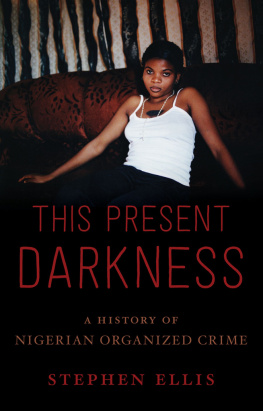
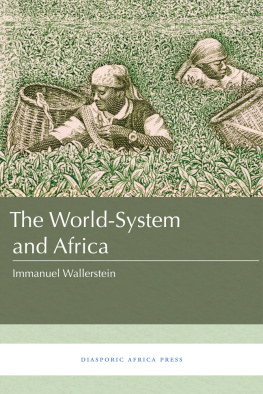
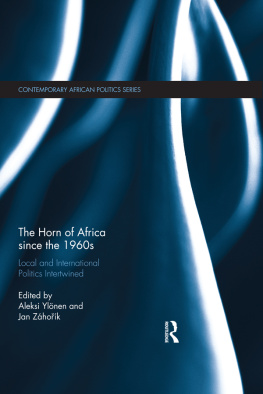
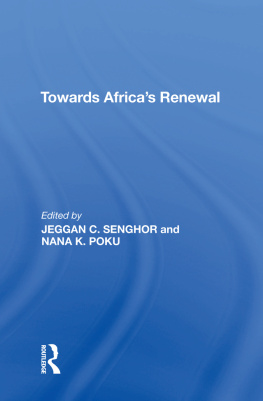
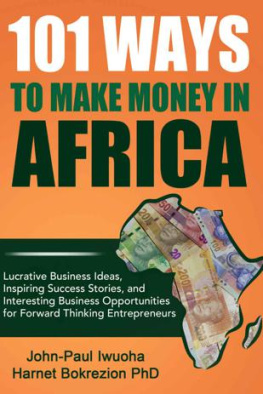
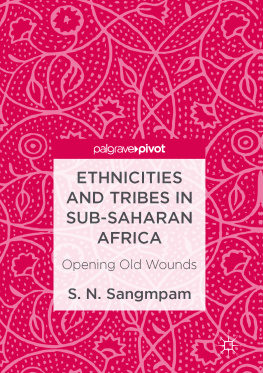
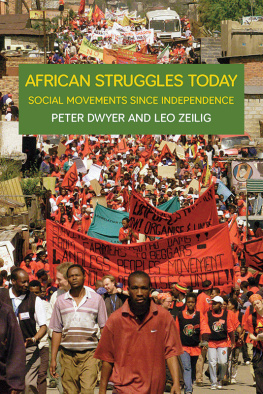
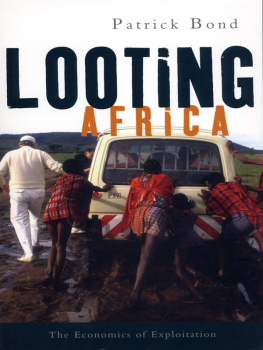
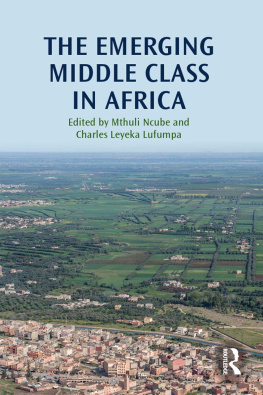
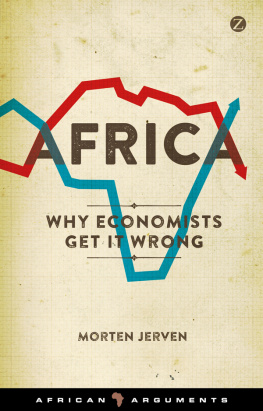
 This paper meets the requirements of ANSI/NISO Z39.48-1992
This paper meets the requirements of ANSI/NISO Z39.48-1992